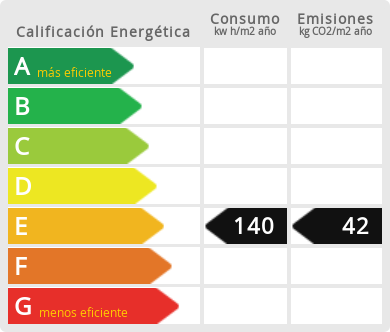Ref. 92235 Appartement/Wohnung in Es Migjorn Gran (Town) Preis: 295.000 €








- Beschreibung
- Umgebungsinfos
- Bitte mehr Information
- Freund Senden
Beschreibung
Beschreibung
Step inside to discover an inviting space, featuring a modern, fully fitted kitchen and a spacious, bright living and dining area. The large windows flood the interior with natural light and frame breathtaking views of the surrounding countryside, stretching all the way to the sea. A private balcony overlooks the quaint village, while the rooftop terrace offers an idyllic spot to soak up the sun or enjoy serene sunsets.
With three generously sized double bedrooms, including a master suite with an en-suite bathroom, and an additional well-appointed bathroom, this apartment is perfect for families or those who love to entertain.
Sold fully furnished and move-in ready, this apartment is a rare find—a harmonious blend of comfort, style, and location. Don't miss the opportunity to make it yours!
Umgebungsinfos
Umgebungsinfos
Es Migjorn is without doubt the youngest district in Menorca. Until 1989 it formed part of Es Mercadal but the strong feelings of identity of the population established it as an independent district. This vitality has always made it a place where the calm of its residents is infected with joy and hospitality due to the celebration of festivals and cultural events that transform a small village into a big family where everyone knows everyone else. The beaches of Santo Tomas and Binigaus are the jewels in the crown of the district. During the summer months the hotel complexes in the two urbanisations play host to hundreds of tourists each year.
Those who visit Menorca have stated that it is one of the paradises of the western Mediterranean, an island that history has always been an object of desire because of its strategic position and which now has ended up becoming one of the most attractive tourist destinations. However, it is not only a dream spot for holidays, but also for living. Menorca allows you to experience for yourself the quality of life that you had always imagined, through the combination of small details that make up its landscape, people, tranquillity, light, traditions and fine food.
Geographically, Menorca is the easternmost and northernmost island of the Balearic Islands, declared a Biosphere Reserve in 1993 by UNESCO. It has a coastline of 701 km² and 216 kilometres of, along which are distributed more than 70 beaches. Blessed with a typically Mediterranean climate with annual average temperatures of 16.5 degrees, it currently has a population of 96,000, concentrated into eight districts: Maó (administrative capital of the island), Ciutadella (the old capital), Alaior, Ferreries, Es Mercadal, Es Castell, Sant Lluís and Es Migjorn Gran. There are three other towns, Sant Climent, Llucmaçanes and Fornells, the first two in the district of Maó and the other in Es Mercadal. Maó, located in the east, and Ciutadella, in the west, are the two most inhabited towns on the island.
Socio-economically, unlike the other islands of the Balearic archipelago, Menorca has, over time, had the good fortune to be able maintain a perfect balance between the traditional industries of footwear, costume jewellery and agriculture favouring the gentle development of the tourist sector and thus enabling the island to preserve its countryside and beaches. This environmental sensitivity still exists among all its inhabitants, guaranteeing a unique setting, perfect for family, sports and cultural tourism.
